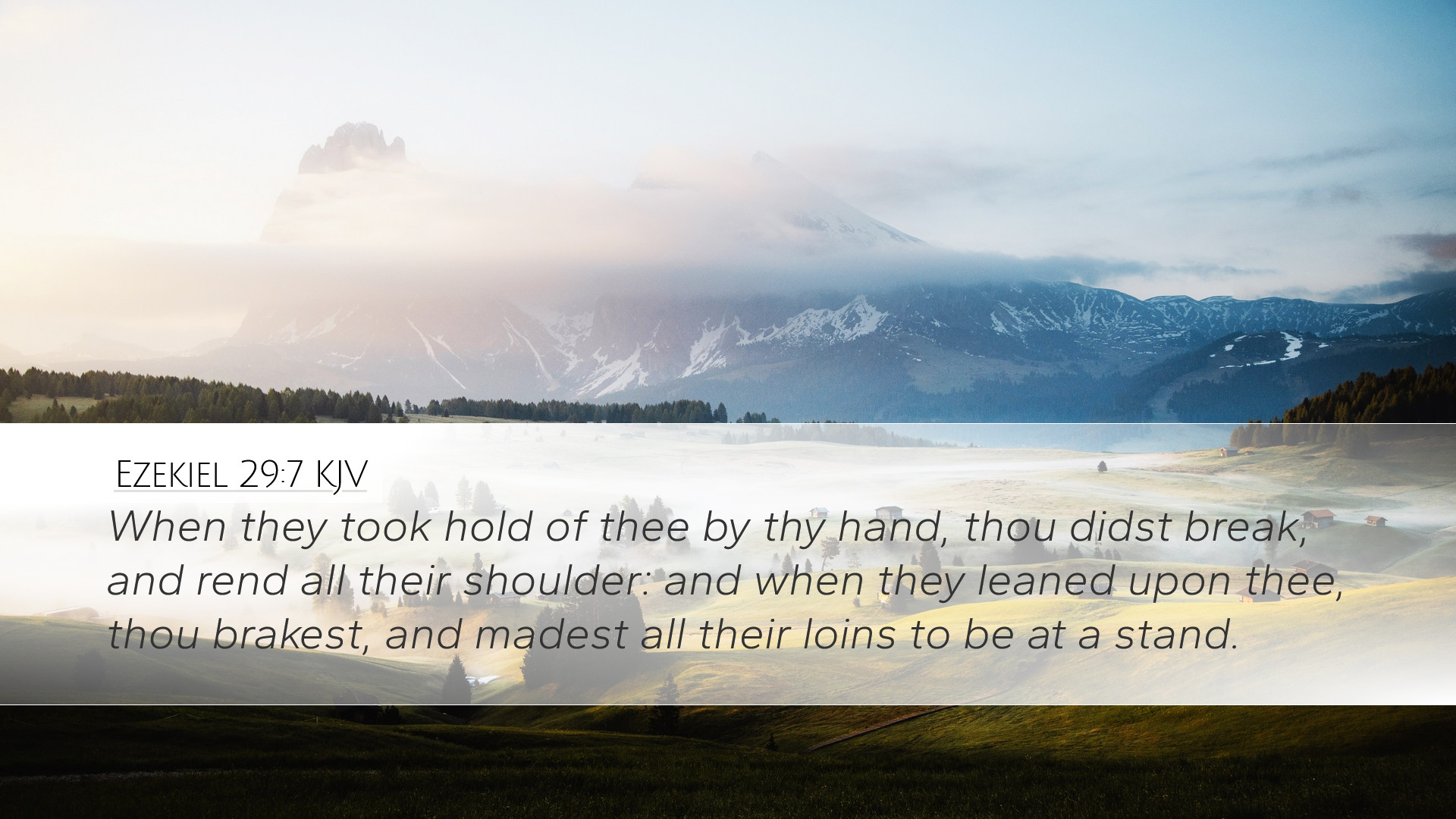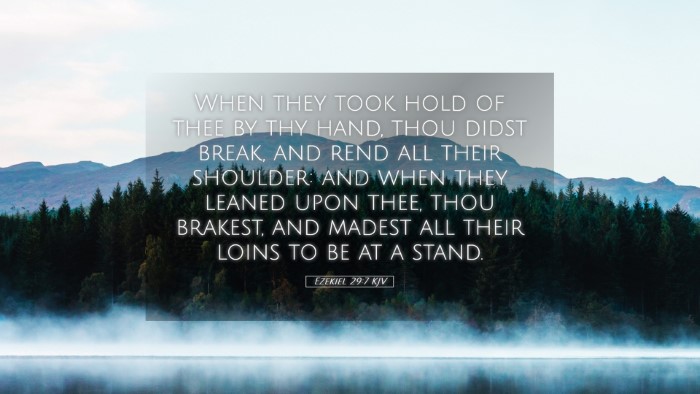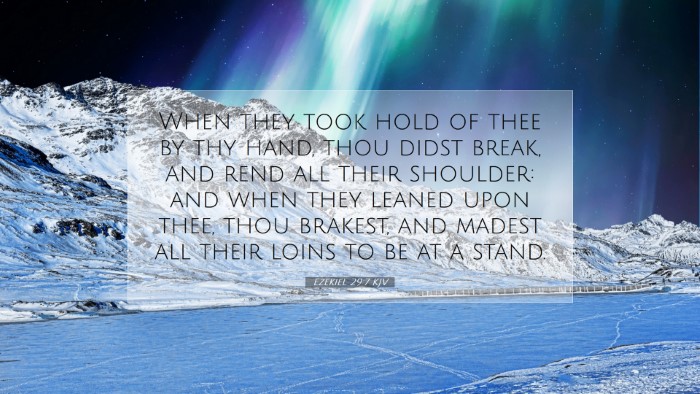Ezekiel 29:7 Commentary
Verse Context: Ezekiel 29:7 states: "When they took hold of you by your hand, you broke and tore all their shoulders; when they leaned on you, you broke and made all their loins shake." This passage is part of Ezekiel’s prophecy against Egypt, portraying the nation's downfall due to its pride and failure to trust in God.
Introduction
This verse emphasizes the futility of reliance on Egypt (symbolizing earthly powers) for support, a theme that resonates in the prophetic literature. The imagery of broken shoulders and trembling loins illustrates the weakness of nations that reject God’s sovereignty.
Insights from Public Domain Commentaries
Matthew Henry’s Commentary
Henry highlights the metaphorical language used by Ezekiel. The “shoulders” represent strength and stability, while the “loins” symbolize vital strength or support. The imagery of Egypt as a broken reed accentuates the dangers of placing confidence in human powers rather than in divine strength.
Henry notes that Egypt, despite its grandeur, ultimately fails to provide security. This failure is not only a warning but also serves as a reflection of spiritual truths applicable to all nations and individuals. Reliance on the worldly often leads to shame and instability, a principle rooted in the biblical understanding of God as the ultimate provider of strength and security.
Albert Barnes’ Notes on the Bible
Barnes elaborates on the symbolism of strength in relationship to Egypt. Egypt is depicted as a force that, when leaned upon, causes injury rather than support. He asserts that the Egyptians were proud of their military might and ability to forge alliances yet were ultimately ineffective in their ability to deliver and protect.
Barnes points out that this verse serves as a warning against placing trust in anything but God. The phrase "you broke and tore" signifies not merely failure but destructive failure; it indicates that Egypt leads to an exacerbation of war and trouble for those who rely on her. The deeper theological implication is the call to trust in Yahweh and acknowledge that all nations are subject to His will.
Adam Clarke’s Commentary
Clarke offers an extensive understanding of the prophetic nature of this verse. He discusses how Egypt's inability to fulfill its promises of aid leads to greater spiritual and physical disarray among those who depended on them. Clarke emphasizes that the imagery serves as an allegory for false dependence—a recurring motif in prophetic literature.
He interprets the "shaking loins" as a representation of instability and fear, transmitting a divine message that trust in human systems without divine endorsement results in inevitable disappointment and chaos. Clarke further emphasizes God's sovereign ability to overthrow reliance on human entities, reaffirming the need for faith in His eternal kingdom.
Theological Implications
This verse speaks powerfully to the contemporary issues of reliance on worldly powers for security and stability. The consistent failures of nations and leaders to bring about lasting peace remind believers of the transitory nature of human authority.
- Human Failure: The collapse of Egypt represents the ultimate inadequacy of human strength without God's blessing.
- Divine Sovereignty: God's control over the nations serves as a reminder that He alone is the source of true power and security.
- Call to Faith: The prophecy challenges believers to place their trust fully in God rather than in the frailties of human systems.
Practical Applications
For pastors, students, theologians, and scholars, this verse represents an opportunity to teach the importance of faith in divine strength. The imagery can be used to illustrate sermons on reliance on God versus reliance on circumstances.
- Encouraging Dependence on God: Pastoral messages can draw from this text to inspire congregations to seek refuge in God during times of uncertainty.
- Analyzing Modern Equivalents: The theme can lead to discussions on modern political reliance and the necessary shift toward faith-based security.
- Engaging with Prophetic Literature: The complexities of prophetic interpretation can foster deeper theological discussions in academic environments.
Conclusion
Ezekiel 29:7 serves as a stark reminder of the pitfalls of human reliance on unstable powers. Through the insights of prominent commentators, we understand the profound spiritual truths encapsulated in this brief yet powerful verse. It beckons believers toward a deeper recognition of God's sovereignty and calls them to trust in Him alone, who is the ultimate source of strength, stability, and security.


